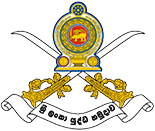 THE ACRONYM ‘IDP’ (Internally Displaced Persons) is soon going to be history in Sri Lanka as more and more war-affected civilians in the northern Wanni region are either fast returning to their new abodes or new dwelling places, perhaps sooner than they expected. In other words, thousands of poor Wanni people who fell prey to the Eelam monster within boundaries of their own areas of residence and forced to seek shelter elsewhere will no longer be labeled as IDPs.
THE ACRONYM ‘IDP’ (Internally Displaced Persons) is soon going to be history in Sri Lanka as more and more war-affected civilians in the northern Wanni region are either fast returning to their new abodes or new dwelling places, perhaps sooner than they expected. In other words, thousands of poor Wanni people who fell prey to the Eelam monster within boundaries of their own areas of residence and forced to seek shelter elsewhere will no longer be labeled as IDPs. As of 23rd December, this year the estimated total of the IDPs housed in the north stood at 108,573. Of them, 19,152 persons had gone out on rest and recreation on temporary passes and another total of 2,180 persons who had exited from different Relief Villages for different reasons have so far failed to turn up within stipulated time frames given to each of them. The authorities at the initial stage received 282,000 IDPs in cleared areas as the exodus around the final stages of the war swelled.
The numbers in Relief Villages are fast dwindling as follows. The Kadirgamar Relief Village, built by the government housed 217,908 at the initial stage and it has now come down to 7,077 as of December 23rd, according to Major General Kamal Gunaratne, Competent Authority for IDPs and Commander Security Forces, Wanni. Similarly, the Zone-I Ananda Kumaraswamy Relief Village that initiated with a strength of 43,824 with the intervention of the government was now reduced to 20,647. Ramanadan (Zone-II) and Arunachalam (Zone-III) Relief Villages began with a crowd of 69,513 and 41,175 have been reduced to 20.509 and 15,107 respectively.
The Zones-IV, V, VI Relief Villages that provided shelter to 37,130, 8,192 and 6,349 have come down to 11,772, 2,655 and 3,664 respectively by 23rd December 2009.
The Dharmapuram and Weerapuram Relief Villages, maintained as part of de-congestion plan in case of any emergency requirement had 10,550 initially in both centres. It has come down to 3,509.
As late as December 23 ninety families with their 324 family members returned to their original villages in Pooneryn, Kilinochchi for resettlement on 22 buses along with 11 lorries, full of their goods and personal items. Each family was given Rs. 50,000/= in cash in addition to a stock of kitchen utensils, farming equipment, dry rations and roofing sheets. It is apparent that the remaining IDPs now numbering a little over one hundred thousand will soon find their homes with the support of the government authorities.

